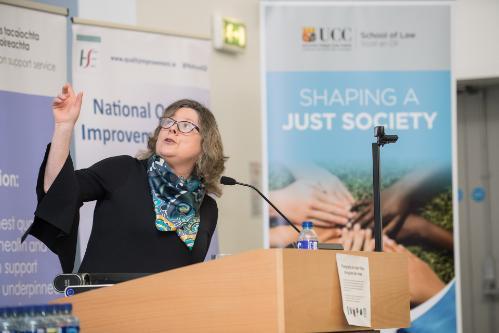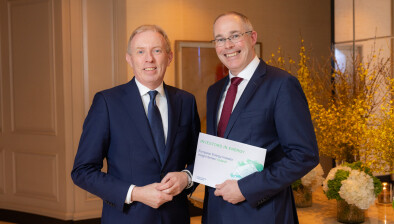Full implementation of new capacity law ‘not getting attention it merits’

Professor Mary Donnelly
The full implementation of key capacity law reforms is “not getting the political attention which it merits” more than four years after the legislation was approved, a senior legal academic has warned.
Professor Mary Donnelly made the remarks ahead of a UCC School of Law conference aimed at preparing staff in health and social care settings for reforms under the Assisted Decision-Making (Capacity) Act 2015.
The 2015 Act provides a modern statutory framework for supported decision-making and establishes the Decision Support Service (DSS), which will help to ensure that people are afforded the fundamental human rights to make their own decisions as far as possible about their personal welfare, property and affairs and finances.
The conference was well-attended by medical, legal and advocacy groups from across the country, and was organised by the DSS, the HSE and UCC School of Law with the stated aim of exploring the potential of the 2015 Act to support people who have issues with decision-making capacity to remain at the centre of all decisions related to them, and reinforcing the need for the legislation to be supported by government.
As well as Professor Donnelly, the two-day event heard from Ms Justice Marie Baker, recent nominee to the Supreme Court; Alex Ruck Keene, a barrister, writer and educator specialising in mental capacity law for England and Wales; Áine Flynn, director of the Decision Support Service; Caoimhe Gleeson, national programme lead for the HSE national assisted decision-making and consent office; and patient and family representatives.
At present, people whose decision-making capacity is impaired are still subject to the Regulation of Lunacy (Ireland) Act, which dates back to 1871 and governs the ward of court system.
Since the 2015 Act was approved, more than 1,250 people have been made wards of court, including 316 so far in 2019. Many more continue to have decisions made for them outside of the legal framework.
Professor Donnelly, who chairs the HSE assisted decision-making steering group, said: “The ongoing reliance on the Victorian concept of wardship is inexcusable in a modern context and is blatantly in contravention of the State’s international law obligations.
“Yet this important issue is not getting the political attention which it merits. Legislation to introduce some necessary amendments to the 2015 Act has still not been introduced and the resources needed for full commencement are not being made available.”
She added: “Our aim is to ensure that the commencement of this Act remains a priority for government, and that we continue to highlight the urgency for a clear timeframe and commitment of resources to enable full commencement.”










